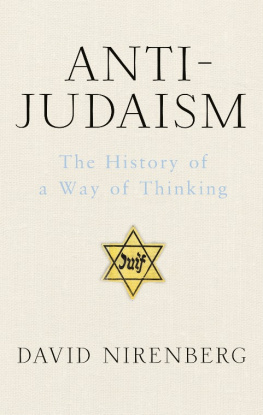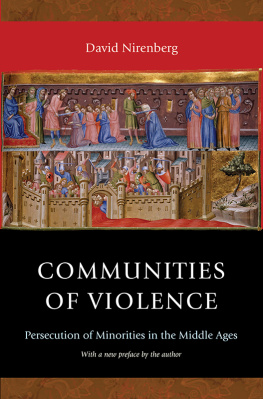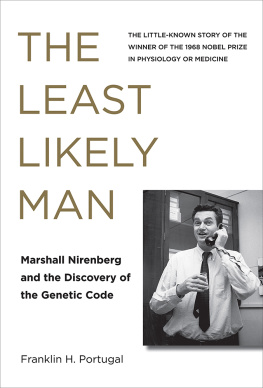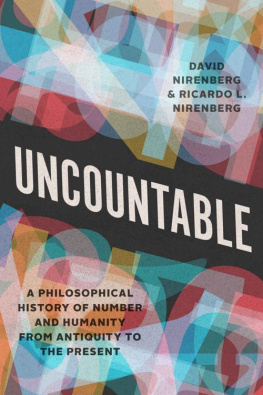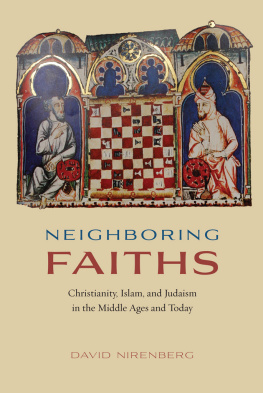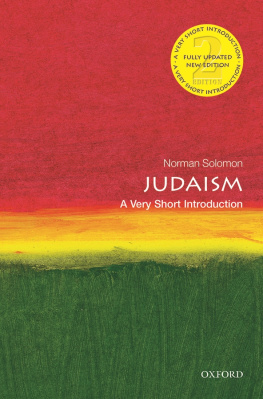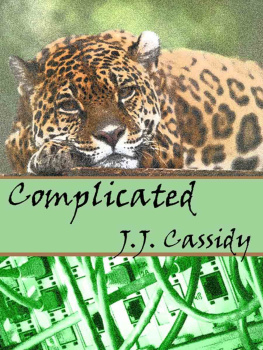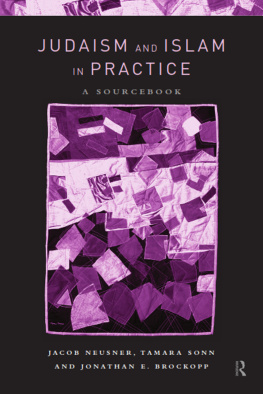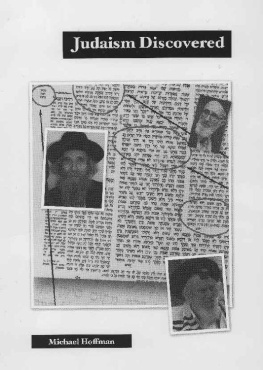Nirenberg - Anti-Judaism
Here you can read online Nirenberg - Anti-Judaism full text of the book (entire story) in english for free. Download pdf and epub, get meaning, cover and reviews about this ebook. City: London, year: 2013, publisher: Head of Zeus, genre: Religion. Description of the work, (preface) as well as reviews are available. Best literature library LitArk.com created for fans of good reading and offers a wide selection of genres:
Romance novel
Science fiction
Adventure
Detective
Science
History
Home and family
Prose
Art
Politics
Computer
Non-fiction
Religion
Business
Children
Humor
Choose a favorite category and find really read worthwhile books. Enjoy immersion in the world of imagination, feel the emotions of the characters or learn something new for yourself, make an fascinating discovery.
Anti-Judaism: summary, description and annotation
We offer to read an annotation, description, summary or preface (depends on what the author of the book "Anti-Judaism" wrote himself). If you haven't found the necessary information about the book — write in the comments, we will try to find it.
Anti-Judaism — read online for free the complete book (whole text) full work
Below is the text of the book, divided by pages. System saving the place of the last page read, allows you to conveniently read the book "Anti-Judaism" online for free, without having to search again every time where you left off. Put a bookmark, and you can go to the page where you finished reading at any time.
Font size:
Interval:
Bookmark:



www.headofzeus.com
For Isabel, for Ricardo, and for Alex
He that doth love, and love amisse,
This worlds delights before true Christian joy,
Hath made a Jewish choice...
And is a Judas-Jew
George Herbert, Self-condemnation [1633]

For several thousand years people have been thinking about Judaism. Ancient Egyptians spent a good deal of papyrus on the Hebrews; early (and not so early) Christians filled pages attempting to distinguish between Judaism and Christianity, the New Israel and the Old; Muhammads followers pondered their Prophets relation to Jews and Sons of Israel; medieval Europeans invoked Jews to explain topics as diverse as famine, plague, and the tax policies of their princes. And in the vast archives of material that survive from Early Modern and Modern Europe and its cultural colonies, it is easy enough to demonstrate that words like Jew , Hebrew , Semite , Israelite , and Israel appear with a frequency stunningly disproportionate to any populations of living Jews in those societies.
We all know that there are differences as well as similarities between these words. Jew is not the same as Hebrew, Israelites are not Israelis, Israeli need not mean Zionist or Jew (or vice versa), and many who have been called Jew or Judaizer in no way identify with Judaism at all. Yet all of these and numerous other words exist in close proximity to each other, and have so often bled together across the long history of thought that, for the sake of simplicity, we can call our topic the history of thinking about Judaism.
Why did so many diverse cultureseven many cultures with no Jews living among themthink so much about Judaism? What work did thinking about Judaism do for them in their efforts to make sense of their world? Did that work in turn affect the ways in which future societies could or would think with Judaism? And how did this history of thinking about Judaism affect the future possibilities of existence for living Jews?
These are the questions I take up in this book. They are dauntingly, even laughably, large: roughly equivalent to asking how what people have thought in the pastthe history of ideasaffects what and how people think in the future. That question once animated the discipline of history. It is seldom asked explicitly today, both because it is so large and because many historians, philosophers, and other students of human cognition have become (rightly) suspicious of any easy answers to it. And yet, even if such questions have no easy answers, without asking them we cannot become self-conscious about how we think, either about past worlds or about our own.
It is with that dilemma in mind that I offer you this account of the labor done by Judaism in the workshops of Western thought. (I will argue that, at least for our topic, Islam should be included within the rubric.) The book is intended above all to suggest some of the important ways in which Jewish questions have shaped the history of thought. But it is also, and more generally, an argument for the vital role that the history of ideas can play in making us aware of how past uses of the concepts we think with can constrain our own thought.
I am certainly not the first person to suggest that questions about Judaism are inculcated into the habits of thought with which people make sense of the world, or to ask how we can become critical of those habits. The term Jewish question ( Judenfrage in German) itself was first brought into general circulation in the middle of the nineteenth century by a group of young German philosophers who imagined themselves to be the pioneers of what they called critical critique. The most famous participant in their discussions was Karl Marx, whose 1844 writings On the Jewish Question and (together with Friedrich Engels) The Holy Family, or Critique of Critical Criticism intervened in a heated debate about whether German Jews needed to convert to Christianity in order to be emancipated from their legal disabilities and become citizens.
Marx insisted that this was the wrong question to debate. According to him, conversion could neither emancipate the Jews of Germany nor free Germany of Judaism, because Judaism is not only a religion but also an attitude, an attitude of spiritual slavery and alienation from the world. This alienation is not exclusive to the Jews. Money is the god of Judaism, but it is also the god of every man, no matter what his confessed religion, who alienates the products of his life and his labor for it. So long as money is god, which is to say so long as there is private property, neither the emancipation of the Jews nor the emancipation of society from Judaism can ever be achieved, for Christian society will continue to produce Judaism out of its own entrails.
Marxs fundamental insight here was that the Jewish question is as much about the basic tools and concepts through which individuals in a society relate to the world and to each other, as it is about the presence of real Judaism and living Jews in that society. He understood that some of these basic toolssuch as money and propertywere thought of in Christian culture as Jewish, and that these tools therefore could potentially produce the Jewishness of those who used them, whether those users were Jewish or not. Judaism, then, is not only the religion of specific people with specific beliefs, but also a category, a set of ideas and attributes with which non-Jews can make sense of and criticize their world. Nor is anti-Judaism simply an attitude toward Jews and their religion, but a way of critically engaging the world. It is in this broad sense that I will use the words Judaism and anti-Judaism . And it is also for this reason that I do not use anti-Semitism , a word that captures only a small portion, historically and conceptually, of what this book is about.
Marxs insight, that our concepts can themselves create the Judaism of the world to which they are applied, seems to me critical. It is a necessary prerequisite for any awareness of how habits of thought project figures of Judaism into the world. From this insight Marx could have proceeded to a criticism of these same habits of thought. He might, for example, have asked why it was that Christian European culture thought of capitalism as Jewish, and written a critical history intended to make his contemporaries more reflective about the association. Famously, he chose instead to exploit these habits, putting old ideas and fears about Jewishness to a new kind of work: that of planning a world without private property or wage labor.
We will spend more time on Marx in chapter 13. Here, I just want to suggest that both aspects of Marxs work on the Jewish question are instructive. On the one hand, his insight that our tools of cognition, communication, and interaction project figures of Judaism into the world has provided some stimulus for reflection on the functions of Judaism in modern thought. That stimulus is obvious, for example, in the title of the Jean-Paul Sartre essay written at the very end of World War II: Reflections on the Jewish Question (1945). It is also obvious in the essays famous argument that the thinking of the anti-Semite produced the Jew, to such an extent that if the Jew did not exist, the anti-Semite would invent him.
Next pageFont size:
Interval:
Bookmark:
Similar books «Anti-Judaism»
Look at similar books to Anti-Judaism. We have selected literature similar in name and meaning in the hope of providing readers with more options to find new, interesting, not yet read works.
Discussion, reviews of the book Anti-Judaism and just readers' own opinions. Leave your comments, write what you think about the work, its meaning or the main characters. Specify what exactly you liked and what you didn't like, and why you think so.

